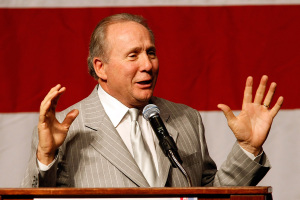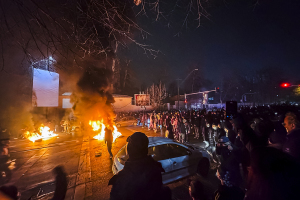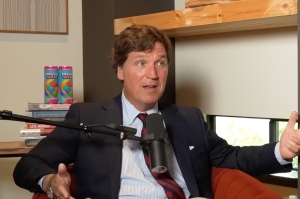Judge Rules in Favor of Dissident Church in Property Dispute Case
The Orange County Superior Court on Monday ruled in favor of a conservative parish that left the Episcopal Church USA over disputes on homosexuality and theology.
The Orange County Superior Court on Monday ruled in favor of a conservative parish that left the Episcopal Church USA over disputes on homosexuality and theology.
St. James Church of Newport Beach left the denomination one year ago following the election of an openly gay bishop, and had since been involved in property disputes with the Los Angeles diocese.
Judge David C .Velasquez’s ruling finalized a tentative opinion he announced last week that rejected the denomination’s claim that the parish’s multi-million dollar property was held in trust for the diocese.
According to a Los Angeles Times report, Los Angeles Bishop Rev. J. Jon Bruno said he would appeal. His attorney, diocesan chancellor John R. Shiner, called the ruling “a grave error.”
Meanwhile, traditionalists in support of the parish said the verdict was “momentous.”
The Rev. Canon David Anderson, president of the American Anglican Council, a network of conservative parishes that oppose the ordination of the gay bishop, said the decision’s impact will even be felt outside denominational walls.
"It gives great encouragement to Episcopalians and people of other Christian denominations that hold to the fact that the local congregation that buys the property and buildings does, in fact, own their property," Anderson said in a telephone interview with the LA Times.
St. James was one of three L.A.-area parishes that severed ties with the denomination over theological disputes. Elsewhere across the nation, parishes have been threatening to leave the Episcopal Church or refuse the oversight of their local bishop because of the conflict over the gay bishop’s ordination.
Property disputes between denominations and unsatisfied congregations that have been taken to court have normally been settled in favor of the larger church body. However, recently, courts have been handling victories to the individual congregations, ignoring denominational laws that require churches to set-aside the property under a trust fund.
Just last year, the Court of Appeals in nearby Fresno ruled that a United Methodist congregation that left the denomination had the right to keep its property.
In the case of Newport Beach, Velazquez said the diocese had failed to show it had ever legally owned the St. James property.
"California courts are not bound by canon law," the judge wrote. State courts, he said, followed "neutral principles of law" in resolving church disputes, relying on deeds, articles of incorporation, state statutes and the rules of the "general" church or denomination.
"No evidence has been presented that a trust over parish property has ever been created under statutory law," Velasquez said.
First amendment rights were also on the side of the church. The judge ruled that St. James was exercising its free speech when it broke with the diocese and amended its articles of incorporation to erase references to the diocese.
"Such acts arise out of and are in furtherance of the [St. James'] exercise of the right to speak on a matter of public interest," the judge wrote, according to the LA Times. "The views expressed by the defendants concern matters of public interest. How churches in America are reacting to the different viewpoints of homosexuality is currently a topic of much public significance."
Two other Episcopal parishes in the L.A. diocese left the denomination and were sued. Velasquez is scheduled to rule on the cases involving All Saints Church in Long Beach and St. David’s Church in North Hollywood.
Meanwhile, in the Presbyterian Church U.S.A, which has a constitutional provision similar to the Episcopal Church that says local congregations must hold their property in trust for the denomination, two congregations are involved in civil property disputes.
For more than 100 years, the Supreme Court’s rule for settling such disputes was to rule in favor of the denomination. However, in 1979, the U.S. Supreme Court case involving a Presbyterian church recommended that property disputes be resolved through neutral principles of law that consider deeds, articles of incorporation and state statues, as well as church law.



























